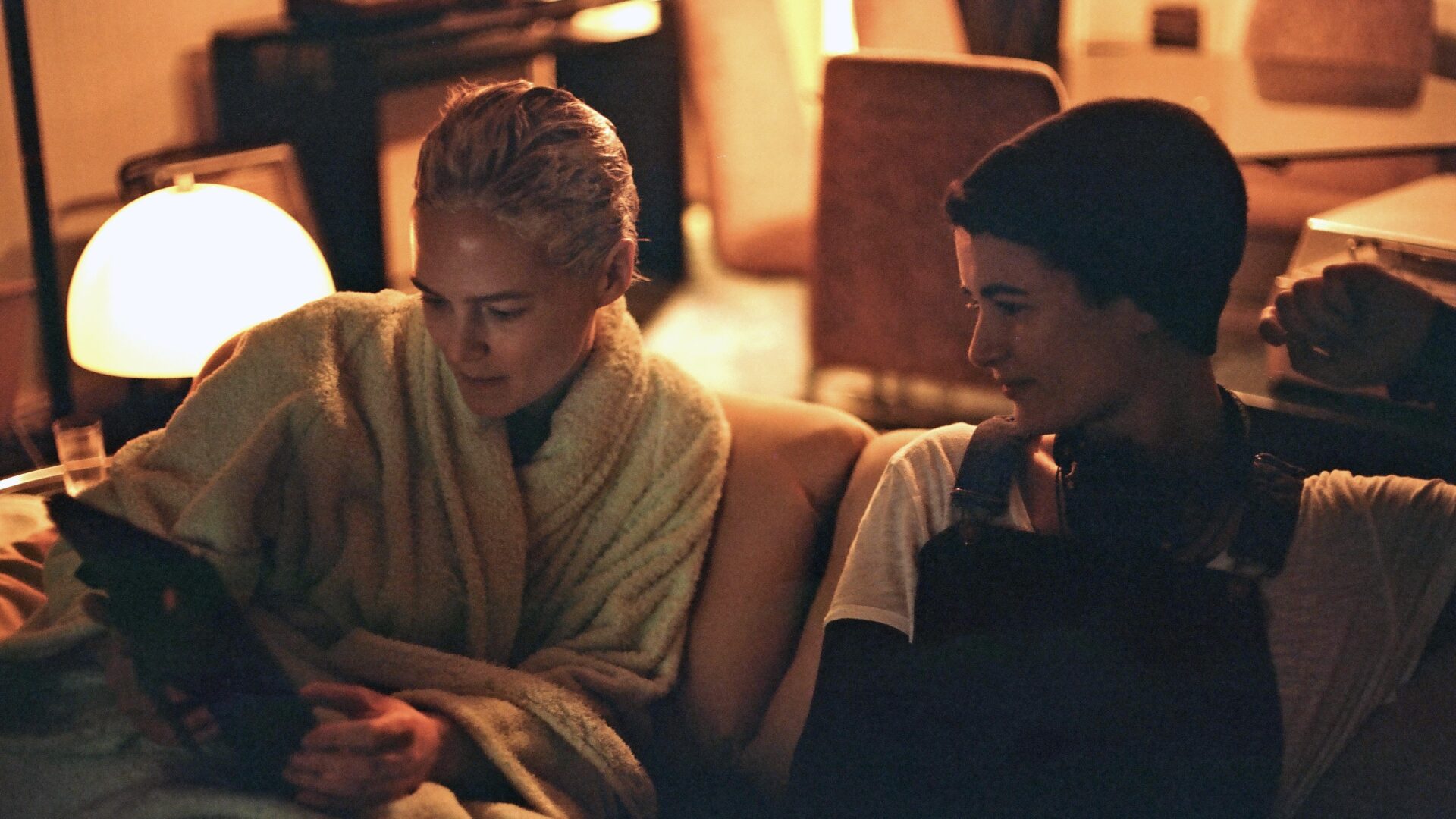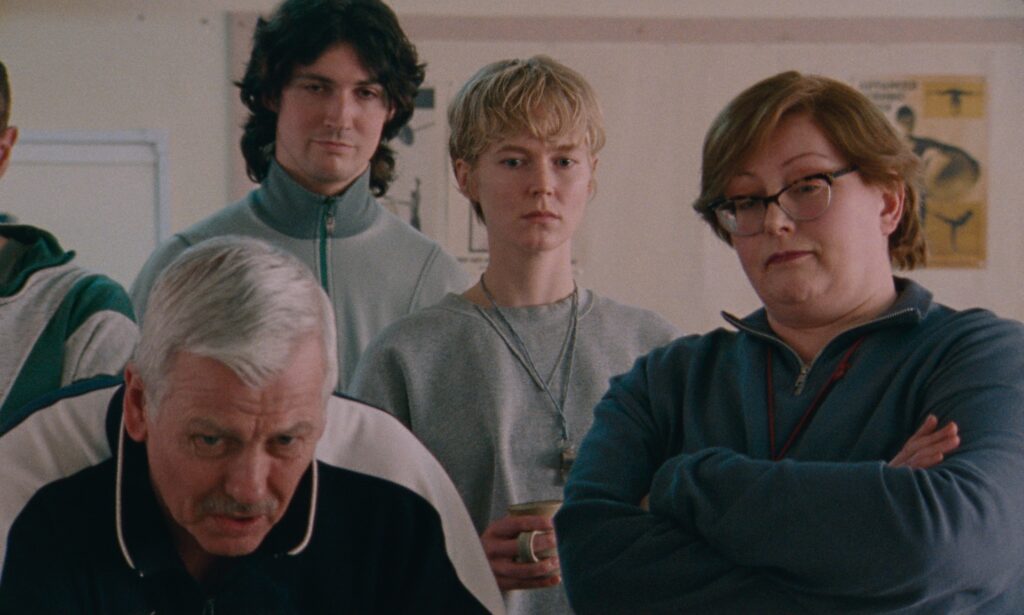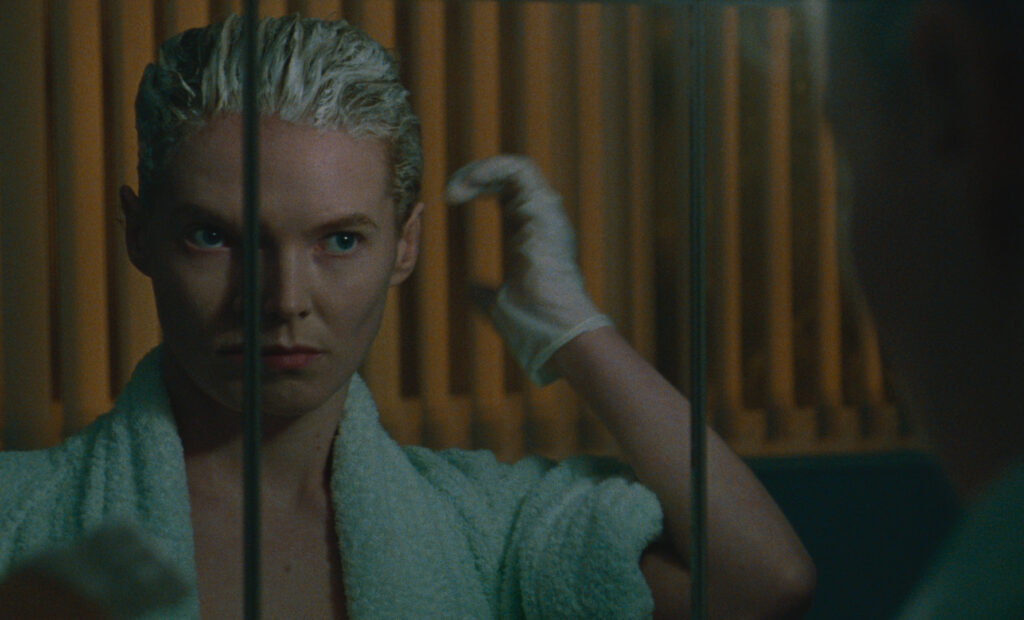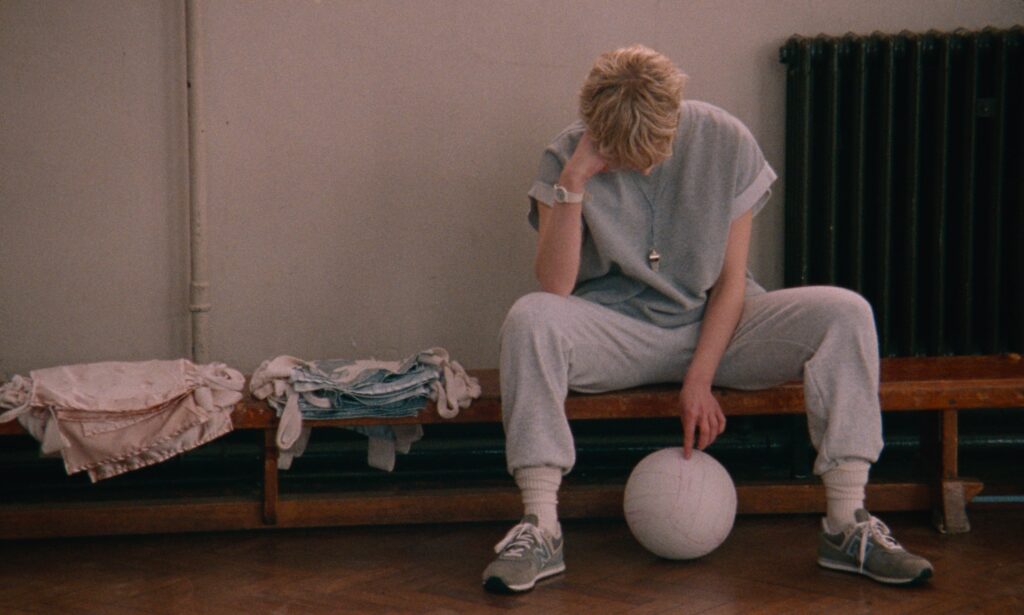Queer authenticity is key to formidable lesbian drama Blue Jean
Exclusive: “If I think it’s authentic and believable that’s all I need,” writer-director Georgia Oakley shared.

In Georgia Oakley’s searing debut Blue Jean, the titular Jean (Rosy McEwen) is living a double life.
One as a PE teacher training her Tyneside high-school netball team and the other as a quiet lesbian finding hushed moments of joy with her girlfriend, Viv (Kerrie Hayes).
The political collides with the personal in this portrait of Thatcher-era Britain with the dawning of Section 28 (the 1988 British law that prohibited the “promotion of homosexuality”) and the arrival of a new student (Lucy Halliday) who bridges the gaps in Jean’s life with terrifying results.
Speaking to Attitude ahead of Blue Jean’s UK release, Oakley shares her experience with Section 28, the importance of haircuts to queer identity, and the need for intergenerational solidarity.
Blue Jean is a phenomenal debut. What was your first encounter with the presence of Section 28 that looms over the film?
Thank you so much. Embarrassingly, I didn’t know anything about Section 28. [Then] I was randomly looking on the internet, I came across an article about lesbian abseilers who had thrown themselves off the balcony of the House of Lords in the middle of the debate on Section 28. It was the most amazing image.
I started to process what a huge effect [Section 28] must’ve had on my life without my knowledge of its existence. I was always thinking not just about a teacher but also about a student and the different ripple effects of the law.

Queer history is so often excluded from our history lessons, so how did you go about researching this very specific moment in British queer history? Was there any community archiving or people to speak with to inform Blue Jean’s realism?
There was an academic in the early 90s who interviewed around 20 women about their experience as lesbian PE teachers during Section 28, very specifically. We met some of the women and interviewed them ourselves. Two of those women ended up being heavily involved, still now. They were really generous and shared diary entries from the time, photographs, and their relationships. There was a lot of wider research, we spoke to the people who started the Pink Paper, LGBT History month, and the abseilers. Also, the women who were a part of the queer scene in Newcastle at the time.
The setting of North East England is also very distinct. Why set Blue Jean there, as opposed to cities like London or Manchester?
In those starting interviews with the 20 women, it was very clear that despite a commonality in their narratives, there were differences between people’s stories in London versus Cornwall versus Newcastle. It became clear that our story had to be set in a northern city, and it couldn’t be Manchester, as that’s the gay capital. A lot of women spoke about creating physical boundaries in their life, for instance: working in a school south of the river and living in the north so they didn’t run into their students. The geography of Newcastle, differing landscapes from the coast to the city, lent itself to our story.

The opening sequence of Jean dyeing her hair blonde introduces transformational queerness shapeshifting between public and private. How did you decide on this elusiveness as the film’s introduction?
Blue Jean is a portrait drama about somebody who wears multiple masks and is forced to present in different ways in different spaces. Rosy [McEwen] wasn’t particularly excited about the prospect of cutting her hair short. We had long conversations about hair and queer identity, and how differently a person can be perceived in the world based on the length of their hair.
Both Rosy and Kerrie [Hayes] underwent radical haircuts, and after I took them to a pub outside Newcastle. I won’t go into the horrific nature of the homophobia that we experienced but as soon as we walked in Rosy tapped me on the leg and said “I get it.” She understood this was not just a vital aspect of the character, but how symbolic and important hair can be.
Rosy manages to communicate Jean’s interiority so effectively. It’s an incredible casting. How did you go about directing that silent queer language?
In her audition tape, Rosy just started speaking as Jean with no intro. She was the Jean I had imagined in my head. Then it meant we were able to work together on building that character and bringing parts of Rosy into the character.
As you say, there are moments of silence and a lot of watching Jean experience things. Some people found the script challenging because it hinged on looks between people and unspoken energy. Rosy didn’t need much guidance. Kerrie was similar; she had the energy I’d always imagined. She’d throw out curveballs that threw Rosy into a spin; that was very important with their dynamic.

Blue Jean offers a refreshing depiction of lesbian sex. Were you conscious of cinematic elements like the male gaze when shooting intimate scenes?
I wanted the sex scenes to be believable. That, for me, was down to how invested the actors were in playing these roles. We put a lot of time into developing a relationship between Rosy and Kerrie. I’d send them off to just go bowling without me, I just wanted them to talk about things like how they thought Jean and Viv had met and their relationship history.
In terms of the sex scenes, I can’t speak in terms of the male-female gaze. I’ve seen a lot of lesbian sex scenes in films that have felt very laboured and awkward to watch. I thought that, as a queer woman, I have the authority to tell this sort of story and if I think it’s authentic and believable then that’s all I need.
The film is also a tale about intergenerational solidarity. How did that concept play into your navigation of Blue Jean?
One thing I’m really aware of as a queer person is that we often fail to understand the experiences of those who came before us, or the other way around. I’ve experienced it with Blue Jean: some young people were angry this film is about ‘queer angst.’ They feel we need to move into an era where we explore stories about queer joy. I get it, but we need to think about how it was for people who have, and continue to have, different experiences from us.
Those that are growing up now, they’ve grown up with Kristen Stewart holding hands with her girlfriend. I grew up without a single queer role model. We need to do better within the community to try and understand each other.
Blue Jean is out in UK cinemas on February 10.
